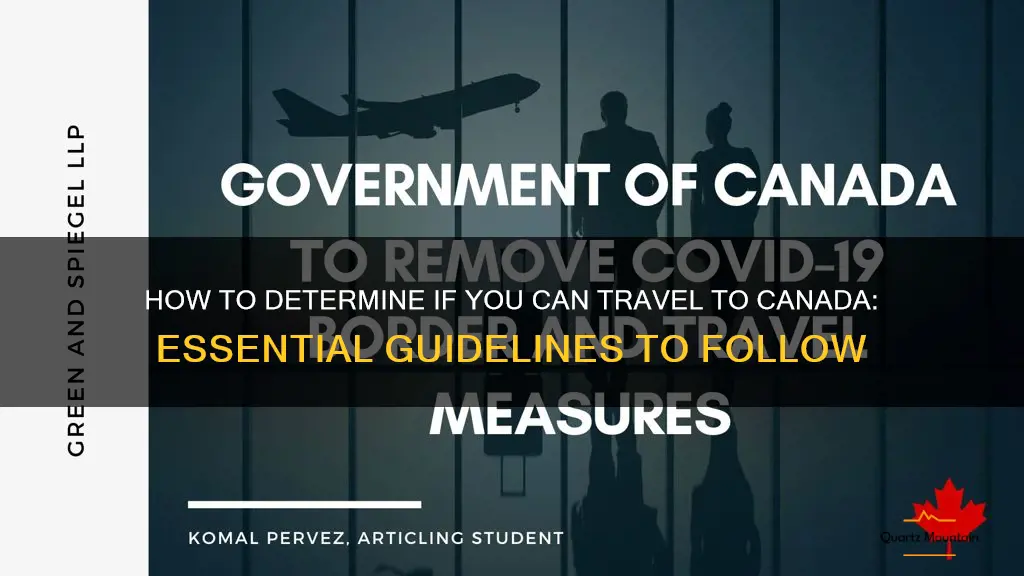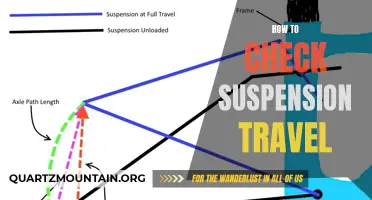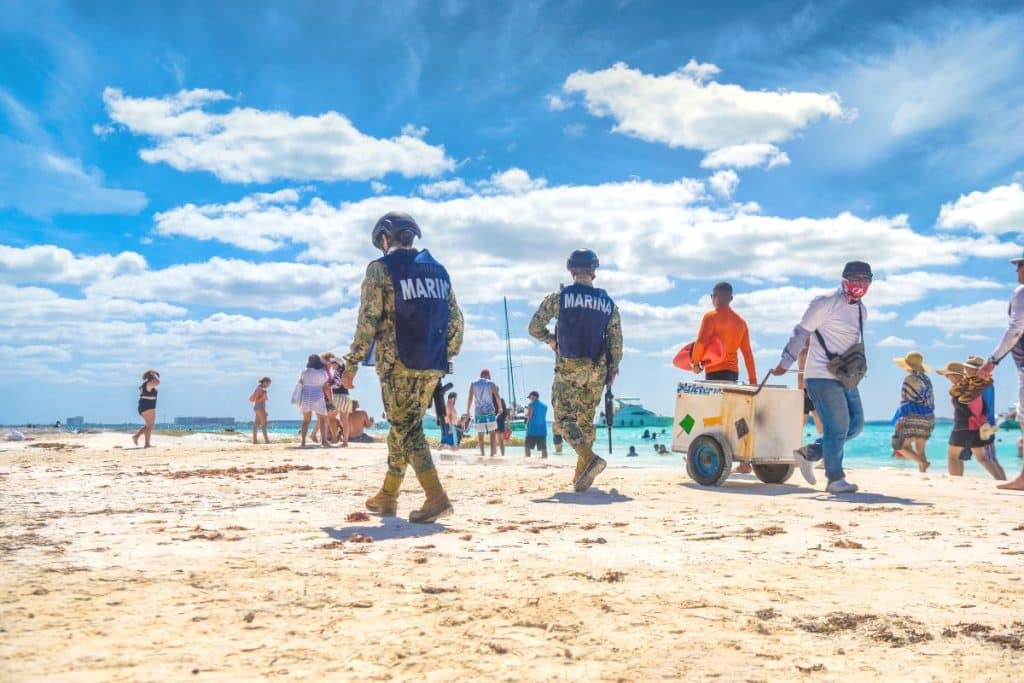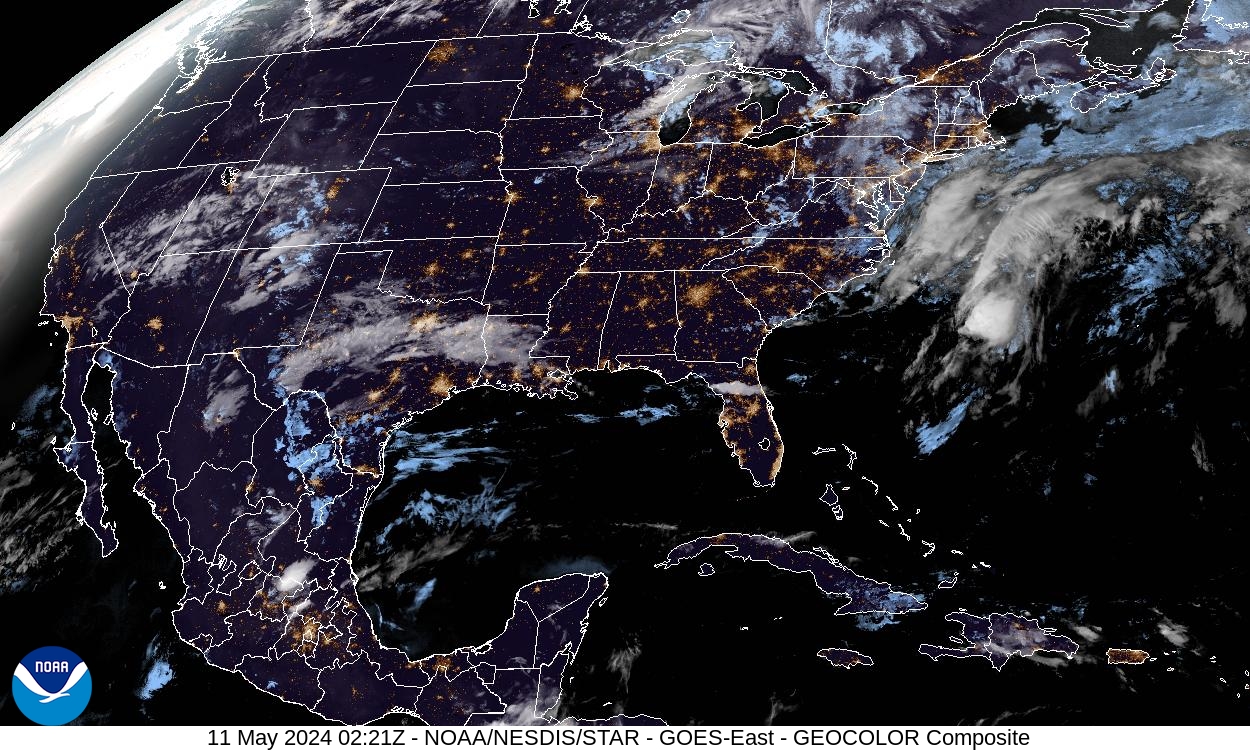- Skip to main content
- Skip to "About this site"

Language selection
Search travel.gc.ca.
Help us to improve our website. Take our survey !
Travel advice and advisories by destination
COVID-19: travel health notice for all travellers
The Government of Canada’s official source of travel information and advice, the Travel Advice and Advisories help you to make informed decisions and travel safely while you are outside Canada. Check the page for your destination often, because safety and security conditions may change. See Travel Advice and Advisories – FAQ for more information.
Where are you going?
Take normal security precautions
Exercise a high degree of caution
Avoid non-essential travel
Avoid all travel
Travel advice from other countries
Travel advice is also provided by the governments of Australia , New Zealand , the United Kingdom and the United States .
Risk Levels
take normal security precautions.
Take similar precautions to those you would take in Canada.
Exercise a high degree of caution
There are certain safety and security concerns or the situation could change quickly. Be very cautious at all times, monitor local media and follow the instructions of local authorities.
IMPORTANT: The two levels below are official Government of Canada Travel Advisories and are issued when the safety and security of Canadians travelling or living in the country or region may be at risk.
Avoid non-essential travel
Your safety and security could be at risk. You should think about your need to travel to this country, territory or region based on family or business requirements, knowledge of or familiarity with the region, and other factors. If you are already there, think about whether you really need to be there. If you do not need to be there, you should think about leaving.
Avoid all travel
You should not travel to this country, territory or region. Your personal safety and security are at great risk. If you are already there, you should think about leaving if it is safe to do so.
- Add a Member
- Upgrade Your Membership
- Give a Gift Membership
- Update Your Information
- Membership Levels
- Membership Level Comparison
- Rewards & Discounts
- CAA Mobile App
- Refer a Friend to CAA
Join CAA Today or call 1-800-JOIN-CAA (1-800-564-6222)
- Book and Save
- Know Before You Go
- Limited Time Offers
- Car Rentals
- Vacation Packages
- Travel Insurance
- Exclusive Group Departures
- Solo Journeys by CAA Atlantic
- Visit Florida
- Walt Disney World®
- Universal Orlando®
- Discovery Cove®
- Aquatica® Orlando
- Busch Gardens® Tampa Bay
- Travel Canada
- Drive Trips
- St. Andrews By-the-Sea, NB
- Halifax, NS
- Prince Edward Island
- Maps , TourBooks®, and Travel Guides
- Online Personal Travel Maps
- Online TourBooks®
- Online Travel Guides
- Online CampBooks®
- International Destinations
- Travel Events and Presentations
- International Driving Permit
- CAA Rewards® Mastercard® Credit Card
- Find a Travel Advisor
- My Reservations
- Auto & Property
- Auto (NB NS PE)
- Property (NB NS PE)
- Property (NL)
- Life & Health
- Health & Dental
- Personal Accident
- Find an Insurance Agent
- Shopping, Dining and More
- CAA Rewards Assistant
- Accessories
- Electronics
- Furniture and Accessories
- Home Improvement
- Personal Services
- Moving and Storage
- Auto Insurance (NB NS PE)
- Auto Insurance (NL)
- Maintenance and Repair
- Parts and Accessories
- Become a Partner
- CAA Rewards Guide
- Automotive Services
- Roadside Assistance
- Bike Assist
- Battery Service
- Approved Auto Repair
- Become a Roadside Assistance Contractor
- Mobile Tire Service
- Advice and Information
- Electric Vehicles
- Eco Driving
- Driving Costs Calculator
- Test Drive the CAA Tesla
- Auto Discounts
- Traffic Safety and Advocacy
- Safe Driving
- Distracted Driving
- Cannabis-Impaired Driving
- Seniors Driving
- Bike Safety
- Air Passenger Rights
- Slow Down, Move Over
- In Our Community
- Media Contacts / Press Releases
- Test Drive CAA Tesla

Understanding Canadian Government Travel Advisories
Once it is safe to travel again, we strongly encourage all Canadians to check the Government of Canada’s Travel Advice and Advisories page for information and updates about your destination.
Checking before you book, just before you leave and even after your departure means you’ll be well-informed about any important precautions that you should take.
The Canadian Government will often issue destination-specific travel advisories that provide valuable information that could affect your safety when you’re travelling abroad. Advisories can be triggered for a variety of reasons including, but not limited to:
- Health emergencies like Zika, Ebola and most recently, COVID-19
- Terrorist threats
- Civil unrest or political instability
- War or military coups
Natural disasters like earthquakes, hurricanes, wildfires, etc.

Levels of travel advisories.
Canada has four different risk levels of travel advisories:
Level 1 - Exercise normal security precautions. This is the lowest level advisory with no significant safety concerns. You’re advised to use common sense and take similar precautions to those you would in Canada.
Level 2 - Exercise a high degree of caution. When travelling to locations under this advisory, you should be cautious at all times because the government has identified safety and security concerns. This doesn’t mean that you should completely avoid travelling to these countries. Just be alert, plan ahead and be sure to monitor local media and follow the instructions of local authorities if anything concerning is reported or happens. IMPORTANT: The two levels below are official Government of Canada Travel Advisories and are issued when the safety and security of Canadians travelling or living in the country may be compromised.
Level 3 - Avoid non-essential travel. Destinations placed under this advisory have specific safety and security concerns that could put you at risk and you should reconsider your need to travel to them. If you are already there, consider leaving if it’s still safe to do so.
Level 4 - Avoid all travel. There is an extreme risk to your personal safety and security and you should not travel to this area. If you’re already in the country under this advisory, you should leave as soon as it is safe to do so.
Avoid all cruise ship travel. With the outbreak of COVID-19, health authorities identified that cruise passengers are at an increased risk of person-to-person spread of the disease. This led to the Canadian Government issuing a new advisory to avoid all cruise travel.
How travel advisories affect your travel insurance.
COVID-19 has impacted the entire world. As such, when it’s safe to travel again, Canadians should always consider purchasing travel insurance and never leave home without any coverage. It’s also important to understand the significance of travel advisories and how they may influence your coverage.
When you’re covered.
Depending on the travel insurance plan you’ve purchased, your policy may cover medical costs depending on:
- Travel advisories in place before your departure date
- Travel advisories in place for your destination at the time of your departure
- The sickness or injury-related expenses you’re seeking compensation for are not connected to the reason for the travel advisory
Example: If you break your ankle and need care, you will still be covered even if there is a Level 3 travel advisory in place due to COVID-19.
- The travel advisory was issued after the date you left for your trip
- You weren’t participating in or voluntarily exposing yourself to a risk (like a riot or civil disorder)
Coverage through CAA Travel Medical Insurance.
For trips departing on or after July 1, 2021.
Our emergency medical plans already provide coverage for COVID-19 related illnesses when Canadian government travel advisories are at Level 2 or 1 (i.e. “Exercise a high degree of caution” or “Exercise normal security precautions”).
Our emergency medical plans now also include up to $2.5 million CAD if partially vaccinated, or up to $5 million CAD if fully vaccinated, for COVID-19 related illnesses that may occur when travelling at a time when the Canadian government has issued a related Level 3 travel advisory (i.e. Avoid non-essential travel”).
Learn more here.
When you’re not covered.
The two highest risk levels of travel advisories, “avoid non-essential travel” and “avoid all travel,” can affect your travel insurance, depending on when the travel advisory comes into effect.
Purchasing Trip Cancellation and Interruption insurance under Level 3 and Level 4 advisories may impact your benefits if you are cancelling your trip for COVID-19 related reasons.
Most travel insurance companies may not cover your claim if:
At the effective date of your policy, an official travel advisory was issued by the Canadian Government stating “avoid non-essential travel” or “avoid all travel” for the country, region or city you’re travelling to.
Example: The Canadian Government issued a Level 3 advisory on March 13, 2020, for every country in the world due to COVID-19. This meant that if you travelled after March 13, 2020, you would not be covered for any medical costs associated to COVID-19.
Why? COVID-19 would be considered a known issue and therefore a general exclusion within the policy.
Note: This exclusion does not apply to claims for an emergency or a medical condition unrelated to the travel advisory:
Example: If you sustain an injury that was not related to COVID-19 like a broken arm or leg, you would still be covered.
Staying safe and connected.
What’s great about travel is it gives us a chance to get away from it all and just disconnect – even for a short period of time. But by taking a few precautions ahead of time, you’ll be able to truly relax, with confidence, knowing you’re protected.
When it’s safe to travel again, be sure to remember the following:
1. Before you leave. Make sure to register with Global Affairs Canada. This ensures the government knows your whereabouts if something goes wrong, and they can inform you if there’s an emergency back home. Registration is free at Registration of Canadians Abroad.
Keep tabs on travel advisories. Refer to the travel advisories page on the government site or download the Government of Canada’s Travel Smart app for up-to-date travel advice and information on your smartphone. The app has information for 200+ destinations and includes advisories, health updates and even emergency contact numbers.
*CAA Atlantic can only match an offer of another IATA-approved agency. Must have a print or email of the other agency’s price. Make sure you’re comparing CAA Atlantic’s bottom line including all promos: new Member coupon, CAA Dollars, etc. CAA Atlantic will not price match another agency’s promotion if we have a similar promotion at the same time.
Sign up to receive updates about travel deals and offers, discounts, membership and so much more.
Get in touch.
For more information, or to book your next vacation, contact us today!
Update May 10, 2024
Information for u.s. citizens in the middle east.
- Travel Advisories |
- Contact Us |
- MyTravelGov |
Find U.S. Embassies & Consulates
Travel.state.gov, congressional liaison, special issuance agency, u.s. passports, international travel, intercountry adoption, international parental child abduction, records and authentications, popular links, travel advisories, mytravelgov, stay connected, legal resources, legal information, info for u.s. law enforcement, replace or certify documents.
Before You Go
Learn About Your Destination
While Abroad
Emergencies
Share this page:
Travel Advisory July 17, 2023
Canada - level 1: exercise normal precautions.
Reissued with obsolete COVID-19 page links removed.
Exercise normal precautions in Canada.
Read the Country Information page for additional information on travel to Canada.
If you decide to travel to Canada:
- Enroll in the Smart Traveler Enrollment Program (STEP) to receive Alerts and make it easier to locate you in an emergency.
- Follow the Department of State on Facebook and Twitter .
- Review the Country Security Report for Canada.
- Prepare a contingency plan for emergency situations. Review the Traveler’s Checklist .
- Visit the CDC page for the latest Travel Health Information related to your travel. Exercise normal precautions in Canada.
Embassy Messages
View Alerts and Messages Archive
Quick Facts
Valid at time of entry
One page required.
Not required for stays under 180 days
Embassies and Consulates
U.S. Embassy Ottawa
490 Sussex Drive Ottawa, Ontario K1N 1G8 Canada Telephone: +1 (613) 688-5335 Emergency After-Hours Telephone: +1 (613) 238-5335 Fax: +1 (613) 688-3082 Email: [email protected]
The Ottawa consular district includes the counties of Kingston, Lanark, Leeds, Prescott, Refrew, Russell, and Stormont in Eastern Ontario, and those parts of the Québec regions of Outaouais and Abitibi-Témiscamingue near Ottawa.
U.S. Consulate General Montreal
1134 Rue Ste- Catherine West Montréal, Quebec H3B 1H4 Canada Telephone: +1 (514) 398-9695 Emergency After-Hours Telephone: +1 (416) 645-9124 Fax: +1 (514) 398-9748 Email: [email protected]
The Montreal consular district includes Greater Montreal and the regions of Southern Quebec Province (Laurentides, Lanaudiere, Laval, Montreal, Montregie, Estrie, and the southern parts of Centre-du-Quebec), including Joliete, Drummondville, and Sherbrooke.
U.S. Consulate General Toronto
360 University Ave Toronto, Ontario M5G 1S4 Canada Telephone: +1 (416) 595-1700 Emergency After-Hours Telephone: +1 (416) 201-4056 Fax: +1 (416) 595-5466 Email: [email protected]
The consular district includes the province of Ontario except for the counties of Kingston, Lanark, Leeds, Prescott, Refrew, Russell, and Stormont, which are served by the U.S. Embassy in Ottawa.
U.S. Consulate General Vancouver
1075 West Pender Street Vancouver, British Columbia V6E 2M6 Canada Telephone: +1 (604) 685-4311 Emergency After-Hours Telephone: +1 (604) 685-4311 Fax: +1 (604) 685-7175 Email: [email protected]
The consular district includes British Columbia and the Yukon Territory.
U.S. Consulate General Halifax
Purdy's Wharf Tower II 1969 Upper Water Street, Suite 904 Halifax, Nova Scotia B3J 3R7 Canada Telephone: +1 (902) 429-2480 Emergency After-Hours Telephone: +1 (902) 429-2480, Press 1 Email: [email protected]
The Halifax consular district includes New Brunswick, Newfoundland and Labrador, Nova Scotia, Prince Edward Island, and the French islands of Saint Pierre and Miquelon.
U.S. Consulate Winnipeg
201 Portage Avenue, Suite 860 Winnipeg, Manitoba R3B 3K6 Canada Telephone: +1 (204) 940-1800 Emergency After-Hours Telephone: +1 (403) 266-8962 and press "0" for assistance (Consulate General Calgary) Fax: +1 (204) 940-1809
The Consulate in Winnipeg provides only emergency services for U.S. citizens. Routine services such as visas, passports and notarials are handled at other U.S. Consulates General, primarily Calgary.
U.S. Consulate General Quebec 2, rue de la Terrasse Dufferin (Vieux Quebec, behind Chateau Frontenac) Quebec, Quebec G1R 4T9 Canada Telephone: +1 (418) 692-2095 Emergency After-Hours Telephone: +1 (418) 692-2096 Fax: +1 (418) 692-4640 Email: [email protected]
The consular district includes Quebec City and those regions of Quebec Province to the North and East of the Montreal and Ottawa Districts (indicated above) – to include the area around Saguenay/Lac Saint-Jean, Rimouski and the Gaspé Peninsula – as well as the Territory of Nunavut.
U.S. Consulate General Calgary 615 Macleod Trail S.E., 10th Floor Calgary, Alberta T2G 4T8 Canada Telephone: +1 (403) 266-8962 Fax: +1 (403) 264-6630 Email: [email protected] The consular district includes Alberta, Manitoba, Saskatchewan, and the Northwest Territories, excluding Nunavut.
Destination Description
Learn about the U.S. relationship to countries around the world.
Entry, Exit and Visa Requirements
For tourist visits to Canada of less than 180 days, U.S. citizens do not need visas. Other types of travel generally require visas. Visit the Immigration, Refugees and Citizenship Canada (IRCC) website for current information.
If you have a criminal record, you may be unable to enter Canada. To determine whether you are criminally inadmissible and get information about how to overcome this finding, refer to the IRCC website . Canada Border Services Agency (CBSA) officials determine if you can enter Canada in accordance with Canadian law.
Travel Programs: Both the U.S. and Canadian governments urge frequent travelers to join the NEXUS trusted traveler program .
Entry into Canada: Canadian law requires that all persons entering Canada carry proof of citizenship and identity. A valid U.S. passport, passport card, or NEXUS card satisfies these requirements for U.S. citizens.
Children under 16 only need proof of U.S. citizenship.
Entry into the United States: When traveling by air from Canada, U.S. citizens must present a U.S. passport book or other approved identification document. The U.S. Customs and Border Protection (CBP) website provides a full list of allowable documents.
Travel with Minors: If you plan to travel to Canada with a minor for whom you do not have full legal custody, CBSA may require a letter of authorization from the minor’s parents or legal guardian(s). Please refer to the CBSA website for more details.
Private Boaters Entering Canada: Canadian law requires all foreign private boaters, including recreational vessels, to present themselves upon their arrival in Canada to the CBSA. See the CBSA website for relevant reporting requirements.
Private Boaters Exiting Canada: Boaters may report their arrival to the United States or apply for a registered boater program using the CBP Reporting Offsite Arrival – Mobile (CBP ROAM) app. Please visit the CBP ROAM webpage for more information.
The U.S. Department of State is unaware of any HIV/AIDS entry restrictions for visitors to Canada. For information on restrictions for HIV positive foreign residents of Canada visit the IRCC website .
Find information on dual nationality , prevention of international child abduction and customs regulations on our websites.
Safety and Security
911 is the emergency telephone number in Canada.
Crime: Although Canada generally has a lower crime rate than the United States, violent crimes occur throughout the country, especially in urban areas. Criminals may target parked cars, especially in large cities and popular tourist destination, for opportunistic smash-and-grab thefts. Do not leave unattended possessions in a vehicle, even in the trunk. Some jurisdictions such as Montreal, Toronto, and Vancouver may fine you for leaving your car doors unlocked or for leaving valuables in view. Pickpockets may target you, especially in popular tourist areas. Exercise caution. Safeguard yourself and your property.
Demonstrations occur frequently. They may take place in response to political or economic issues, on politically significant holidays, and during international events.
- Demonstrations can be unpredictable, avoid areas around protests and demonstrations.
- Check local media for updates and traffic advisories.
While there is a very small likelihood of violence at a political gathering in Canada, we strongly encourage U.S. citizens to avoid all protests and demonstrations and maintain a high level of vigilance and practice good situational awareness when traveling abroad.
International Financial Scams: See the Department of State and the FBI pages for information.
Victims of Crime: U.S. citizen victims of sexual assault are encouraged to contact the U.S. Embassy for assistance. Report crimes to the local police at 911 and contact the U.S. Embassy at +1(613) 688-5335. Remember that local authorities are responsible for investigating and prosecuting crime.
See our webpage on help for U.S. victims of crime overseas .
• Help you find appropriate medical care
• Assist you in reporting a crime to the police
• Contact relatives or friends with your written consent
• Provide general information regarding the victim’s role during the local investigation and following its conclusion
• Provide a list of local attorneys
• Provide our information on victim’s compensation programs in the U.S.
• Provide an emergency loan for repatriation to the United States and/or limited medical support in cases of destitution
• Help you find accommodation and arrange flights home
• Replace a stolen or lost passport
Domestic Violence: U.S. citizen victims of domestic violence are encouraged to contact the U.S. Embassy or Consulates for assistance.
Tourism: The tourism industry is generally regulated and rules with regard to best practices and safety inspections are regularly enforced. Hazardous areas/activities are identified with appropriate signage and professional staff is typically on hand in support of organized activities. In the event of an injury, appropriate medical treatment is widely available throughout the country.
Outside of a major metropolitan center, it may take more time for first responders and medical professionals to stabilize a patient and provide life-saving assistance. If you are considering travel outside of populated areas, particularly in the northern Arctic territories, you need to know that search and rescue capabilities are limited because of extreme isolation and the harsh climate. You must be prepared for significant delays in receiving emergency assistance in these areas and plan accordingly.
U.S. citizens are encouraged to purchase medical evacuation insurance .
Local Laws & Special Circumstances
Criminal Penalties: You are subject to local laws. If you violate local laws, even unknowingly, you may be expelled, arrested, or imprisoned. Individuals establishing a business or practicing a profession that requires additional permits or licensing should seek information from the competent local authorities, prior to practicing or operating a business.
Furthermore, some laws are also prosecutable in the United States, regardless of local law. For examples, see our website on crimes against minors abroad and the Department of Justice website.
Arrest Notification: If you are arrested or detained, ask police or prison officials to notify the U.S. Embassy immediately. See our webpage for further information.
Controlled Substances: Canadian law prohibits possession and trafficking of controlled substances and narcotics, including some substances that may be legal to possess under the law of certain U.S. states. Canada has legalized the personal consumption of recreational cannabis, but Canadian law prohibits taking cannabis across Canada’s national borders . Drug smugglers risk substantial fines, a permanent bar from Canada, and imprisonment.
Counterfeit and Pirated Goods: Although counterfeit and pirated goods are prevalent in many countries, they may still be illegal according to local laws. You may also pay fines or have to give them up if you bring them back to the United States. See the U.S. Department of Justice website for more information.
Faith-Based Travelers: See the following webpages for details:
- Faith-Based Travel Information
- International Religious Freedom Report – see country reports
- Human Rights Report – see country reports
- Hajj Fact Sheet for Travelers
- Best Practices for Volunteering Abroad
Firearms : Canada controls firearms more strictly than the United States. Violation of firearms restrictions may result in prosecution and imprisonment.
Visitors bringing any firearms or ammunition into Canada must declare the firearms in writing using a Non-Resident Firearm Declaration form. If you plan to borrow and use a firearm in Canada, you must obtain a Temporary Firearms Borrowing License in advance. You must present these forms in triplicate and sign them in front of a CBSA officer at the border. (It is not possible to make photocopies at the border). Full details and downloadable forms are available at the Canadian Firearms Program website .
Canadian law requires officials to confiscate firearms, ammunition, and other weapons from persons crossing the border who do not declare having the items in their possession. Officials will not return confiscated firearms, ammunition, and weapons and possession of any of these items may result in your arrest and imprisonment. You should inspect all belongings thoroughly before traveling to Canada to avoid the accidentally importing firearms, ammunition, or other weapons.
LGBTQI+ Travelers: There are no legal restrictions on same-sex sexual relations or the organization of LGBTQI+ events in Canada. See our LGBTQI+ Travel Information page and section 6 of our Human Rights report for further details.
Pornography: Canada has strict laws concerning child pornography, and in recent years there has been an increase in random checks of electronic media of travelers entering Canada.
Canadian officials may search your computers, cell phones, and other electronic devices without a warrant at the border and illegal content can result in the seizure of the device as well as detention, arrest, and prosecution of the bearer.
Tax Issues: For information on U.S. Federal tax issues, please refer to the Internal Revenue Service (IRS) website for international taxpayers .
- Refer to this link for reporting requirements regarding Foreign Bank and Financial Accounts (FBAR) .
- Refer to this link for information on the Foreign Account Tax Compliance Act (FATCA) .
- Refer to this link for information about the Voluntary Disclosure Practice .
Travelers with Disabilities: The law in Canada prohibitsdiscrimination against persons with physical or mental disabilities and the law is enforced. Social acceptance of persons with disabilities in public is as prevalent as in the United States. For more information, visit the Accessibility Standards Canada website .
Students: See our Students Abroad page and FBI travel tips .
Women Travelers: See our travel tips for Women Travelers .
For emergency services in Canada, dial 911 . Ambulance services are widely available.
We do not pay medical bills. Be aware that U.S. Medicare/Medicaid does not apply overseas. Most hospitals and doctors overseas do not accept U.S. health insurance.
Medical Insurance: Make sure your health insurance plan provides coverage overseas. Most care providers overseas only accept cash payments. See our webpage for more information on insurance coverage. Visit the U.S. Centers for Disease Control and Prevention for more information on type of insurance you should consider before you travel overseas.
We strongly recommend supplemental insurance to cover medical evacuation.
Always carry your prescription medication in original packaging, along with your doctor’s prescription. Check with Health Canada to ensure the medication is legal in Canada.
Healthcare in Canada : The level of public health and sanitation in Canada is high. Adequate health facilities are available throughout Canada. Canada’s medical care is of a high standard but is government controlled. Access to ongoing medical care is difficult for temporary visitors who are not members of a Canadian province’s government-run health care plan. Many physicians will not take new patients. Specialist care is only by referral and may take months to obtain. Although trauma-care is on par with that in the United States, emergency room waits for non-life threatening problems can be very long. Some health care professionals in the Quebec may only speak French.
The U.S. Embassy maintains a list of doctors and hospitals . We do not endorse or recommend any specific medical provider or clinic.
Vaccinations: Be up-to-date on all CDC-recommended vaccinations .
Further health information:
World Health Organization U.S. Centers for Disease Control and Prevention
Air Quality: Visit AirNow Department of State for information on air quality at U.S. Embassies and Consulates.
Medical Tourism and Elective Surgery: We strongly recommend supplemental insurance to cover medical evacuation in the event of unforeseen medical complications.
Pharmaceuticals: U.S. Customs and Border Protection and the Food and Drug Administration are responsible for rules governing the transport of medication back to the United States. Medication purchased abroad must meet their requirements to be legally brought back into the United States. Medication should be for personal use and must be approved for usage in the United States. Please visit the U.S. Customs and Border Protection and the Food and Drug Administration websites for more information.
Assisted Reproductive Technology and Surrogacy: If you are considering traveling to Canada to have a child through use of assisted reproductive technology (ART) or surrogacy, please see our ART and Surrogacy Abroad page .
Travel and Transportation
Road Conditions and Safety: As in the United States, all emergency assistance in Canada can be reached by dialing 911.
For detailed information on road conditions throughout Canada, as well as links to provincial government websites, please see the Transport Canada website or the Canadian Automobile Association (CAA) website. The CAA honors American Automobile Association memberships. Automobile warranties of vehicles purchased in the United States may not be valid in Canada.
Winter travel can be dangerous due to heavy snowfalls and hazardous icy conditions. Some provinces require snow tires. CAA has tips for winter driving . Both winter conditions and wildfires may prompt the sudden closure of highways. Provincial ministries of transport typically post closures and other alerts about road conditions on their websites.
Traffic Laws: Driving in Canada is similar to driving in many parts of the United States. Distances and speeds, however, are posted in kilometers per hour and some signs, particularly in Québec, may only be in French. U.S. driver’s licenses are valid for visitors in Canada. Proof of auto insurance is required. U.S. auto insurance is accepted for tourists in Canada. For specific information concerning Canadian driving permits, mandatory insurance, and entry regulations, please contact the Canadian National Tourist Organization .
Some provinces require drivers to keep their vehicles’ headlights on during the day and some have banned driving while using a hand-held cell phone. Motorcycles cannot share a lane, and safety helmets for motorcycle riders and passengers are mandatory.
It is illegal to take automobile radar detectors into Québec, Ontario, Manitoba, the Yukon, or the Northwest Territories, regardless of whether they are used. Police may confiscate radar detectors and impose substantial fines.
Drivers approaching border crossings into the United States may encounter traffic backups. Drivers should be alert, as lane restrictions at border approaches exist for drivers in NEXUS and FAST expedited inspection programs.
Public Transportation: Public transportation options vary across Canada, but all cities and most major towns have a public transit system .
Aviation Safety Oversight: The U.S. Federal Aviation Administration (FAA) has assessed the government of Canada’s Civil Aviation Authority as being in compliance with International Civil Aviation Organization (ICAO) aviation safety standards for oversight of Canada’s air carrier operations. Further information may be found on the FAA’s safety assessment page .
Maritime Travel: Mariners planning travel to Canada should also check for U.S. maritime advisories and alerts . Information may also be posted to the U.S. Coast Guard homeport website , and the NGA broadcast warnings .
For additional travel information
- Enroll in the Smart Traveler Enrollment Program (STEP) to receive security messages and make it easier to locate you in an emergency.
- Call us in Washington, D.C. at 1-888-407-4747 (toll-free in the United States and Canada) or 1-202-501-4444 (from all other countries) from 8:00 a.m. to 8:00 p.m., Eastern Standard Time, Monday through Friday (except U.S. federal holidays).
- See the State Department’s travel website for the Worldwide Caution and Travel Advisories .
- Follow us on Twitter and Facebook .
- See traveling safely abroad for useful travel tips.
Review information about International Parental Child Abduction in Canada . For additional IPCA-related information, please see the International Child Abduction Prevention and Return Act ( ICAPRA ) report.
Travel Advisory Levels
Assistance for u.s. citizens, learn about your destination, enroll in step.

Subscribe to get up-to-date safety and security information and help us reach you in an emergency abroad.
Recommended Web Browsers: Microsoft Edge or Google Chrome.
Check passport expiration dates carefully for all travelers! Children’s passports are issued for 5 years, adult passports for 10 years.
Afghanistan
Antigua and Barbuda
Bonaire, Sint Eustatius, and Saba
Bosnia and Herzegovina
British Virgin Islands
Burkina Faso
Burma (Myanmar)
Cayman Islands
Central African Republic
Cote d Ivoire
Curaçao
Czech Republic
Democratic Republic of the Congo
Dominican Republic
El Salvador
Equatorial Guinea
Eswatini (Swaziland)
Falkland Islands
France (includes Monaco)
French Guiana
French Polynesia
French West Indies
Guadeloupe, Martinique, Saint Martin, and Saint Barthélemy (French West Indies)
Guinea-Bissau
Isle of Man
Israel, The West Bank and Gaza
Liechtenstein
Marshall Islands
Netherlands
New Caledonia
New Zealand
North Korea (Democratic People's Republic of Korea)
Papua New Guinea
Philippines
Republic of North Macedonia
Republic of the Congo
Saint Kitts and Nevis
Saint Lucia
Saint Vincent and the Grenadines
Sao Tome and Principe
Saudi Arabia
Sierra Leone
Sint Maarten
Solomon Islands
South Africa
South Korea
South Sudan
Switzerland
The Bahamas
Timor-Leste
Trinidad and Tobago
Turkmenistan
Turks and Caicos Islands
United Arab Emirates
United Kingdom
Vatican City (Holy See)
External Link
You are about to leave travel.state.gov for an external website that is not maintained by the U.S. Department of State.
Links to external websites are provided as a convenience and should not be construed as an endorsement by the U.S. Department of State of the views or products contained therein. If you wish to remain on travel.state.gov, click the "cancel" message.
You are about to visit:
- Skip to main content
- Skip to "About this site"
Language selection
Search travel.gc.ca.
Help us to improve our website. Take our survey !
Travel advice and advisories by destination
COVID-19: travel health notice for all travellers
The Government of Canada’s official source of travel information and advice, the Travel Advice and Advisories help you to make informed decisions and travel safely while you are outside Canada. Check the page for your destination often, because safety and security conditions may change. See Travel Advice and Advisories – FAQ for more information.

Where are you going?
Take normal security precautions
Exercise a high degree of caution
Avoid non-essential travel
Avoid all travel
Travel advice from other countries
Travel advice is also provided by the governments of Australia , New Zealand , the United Kingdom and the United States .
Risk Levels
take normal security precautions.
Take similar precautions to those you would take in Canada.
Exercise a high degree of caution
There are certain safety and security concerns or the situation could change quickly. Be very cautious at all times, monitor local media and follow the instructions of local authorities.
IMPORTANT: The two levels below are official Government of Canada Travel Advisories and are issued when the safety and security of Canadians travelling or living in the country or region may be at risk.
Avoid non-essential travel
Your safety and security could be at risk. You should think about your need to travel to this country, territory or region based on family or business requirements, knowledge of or familiarity with the region, and other factors. If you are already there, think about whether you really need to be there. If you do not need to be there, you should think about leaving.
Avoid all travel
You should not travel to this country, territory or region. Your personal safety and security are at great risk. If you are already there, you should think about leaving if it is safe to do so.
How To Determine If You Can Travel To Canada: Essential Guidelines To Follow
- Last updated May 11, 2024
- Difficulty Beginner
- Category Travel

Are you dreaming of visiting the stunning landscapes and culturally rich cities of Canada? Before you pack your bags and head north, it's essential to determine if you can travel to Canada. The guidelines and requirements for entering this diverse and captivating country are important to follow to ensure a smooth and stress-free journey. In this article, we will discuss the essential guidelines you need to know before embarking on your Canadian adventure. Whether it's a vacation, business trip, or a reunion with loved ones, understanding the rules set by the Canadian government will help you plan your trip effectively. So, let's dive into the essential guidelines that will determine if you can travel to Canada and fulfill your travel dreams in the Great White North.
What You'll Learn
Canadian travel restrictions and requirements, covid-19 testing and vaccination requirements for travel to canada, entry requirements for visitors and tourists, resources to check if you can travel to canada.

Traveling to Canada may require you to meet certain restrictions and requirements. Before planning your trip, it is important to understand the current rules and regulations in place. This guide will provide you with the necessary information to determine if you can travel to Canada.
Check the Travel Advisory
The first step is to check the travel advisory issued by the government of Canada. The advisory will provide information on the current situation in Canada and any travel advisories or warnings for specific countries. It is essential to review this advisory regularly as it is updated based on the changing circumstances.
Determine Your Travel Category
Canada has categorized travelers into different categories based on their purpose of travel and vaccination status. These categories include fully vaccinated travelers, partially vaccinated travelers, and unvaccinated travelers. Each category has specific requirements and restrictions.
COVID-19 Vaccination
Vaccination plays a significant role in travel requirements. If you are eligible for vaccination, it is highly recommended to get vaccinated before traveling to Canada. Different vaccines are accepted, including Pfizer, Moderna, AstraZeneca, and Johnson & Johnson. Ensure that you complete the required doses for full vaccination.
Pre-arrival Testing
All travelers to Canada, regardless of vaccination status, are required to have a pre-arrival COVID-19 test. The test must be conducted within a specific timeframe before your scheduled departure, usually 72 hours. Make sure to check the exact timing requirements as they may vary.
ArriveCAN App
Before traveling to Canada, download the ArriveCAN mobile app or use the online portal to submit your travel information. This includes your COVID-19 test results, vaccination details, and a quarantine plan (if applicable). You will receive a receipt through the app, which you should show upon arrival.
Quarantine Requirements
Depending on your vaccination status and travel category, you may be required to quarantine upon arrival in Canada. Fully vaccinated travelers may be exempt from the mandatory 14-day quarantine period, while unvaccinated or partially vaccinated travelers may need to quarantine at a designated facility or a suitable place of quarantine. Check the specific requirements for your category.
Travel Insurance
It is highly recommended to have travel insurance that covers COVID-19-related medical expenses, trip cancellation, and interruption. Check with your insurance provider to ensure your policy includes adequate coverage for your trip to Canada.
Check Entry Restrictions
In addition to the general travel requirements, specific entry restrictions may apply to certain countries or regions. Some countries may have additional quarantine or testing requirements upon return, so make sure to check the entry restrictions for both Canada and your home country.
Monitor Updates
Travel restrictions and requirements can change frequently, so it is crucial to monitor updates from the government of Canada and any relevant authorities. Stay informed about any new regulations or changes to existing ones to ensure a smooth travel experience.
Consult with Canadian Authorities
If you have any specific concerns or questions regarding your eligibility to travel to Canada, it is best to consult with Canadian immigration officials or contact the Canadian embassy or consulate in your home country. They can provide you with the most accurate and up-to-date information.
Remember, it is important to follow all the regulations and requirements set by the government of Canada to ensure the health and safety of yourself and others. By staying informed and prepared, you can have a smooth and hassle-free travel experience to Canada.
Exploring the Process of Adjusting Mountain Bike Fork Travels for Optimal Performance
You may want to see also
With the ongoing COVID-19 pandemic, it's important to stay informed about travel requirements and restrictions. If you are planning to travel to Canada, you will need to adhere to certain testing and vaccination requirements in order to enter the country. In this article, we will provide you with detailed information on what you need to know before embarking on your trip.
Testing Requirements:
Before travelling to Canada, you must get tested for COVID-19. The type of test required will depend on whether you are fully vaccinated or not. If you are not fully vaccinated, you will need to take a pre-entry PCR test within 72 hours before your departure time to Canada. The result of this test must be negative for you to be allowed to board your flight.
On the other hand, if you are fully vaccinated, you will need to take a pre-entry PCR test within 72 hours before your departure time, just like those who are not fully vaccinated. However, fully vaccinated individuals can also choose to take a rapid antigen test instead. Again, the result of this test must be negative in order to travel to Canada.
Vaccination Requirements:
To be considered fully vaccinated, you must have received all required doses of a Health Canada-approved vaccine at least 14 days before your planned arrival in Canada. Currently, the Health Canada-approved vaccines include Pfizer-BioNTech, Moderna, AstraZeneca/COVISHIELD, and Johnson & Johnson. It's important to note that vaccines not approved by Health Canada will not be accepted for the purposes of exempting individuals from quarantine or other travel requirements.
You will also need to provide proof of vaccination. This proof should be in the form of an official document issued by your country's health authority or government. The document should clearly state your personal information, the type of vaccine received, the date(s) of vaccination, and the location where the vaccine was administered. Ensure that the document is in either English or French, or be accompanied by an official translation.
Arrival and Quarantine Requirements:
Upon arrival in Canada, all travelers, regardless of vaccination status, are required to submit their travel and contact information through the ArriveCAN app or website before entering the country. Failure to do so may result in penalties or delays at the border.
Fully vaccinated individuals may be eligible for an exemption from the mandatory 14-day quarantine requirement, as long as they meet certain conditions. These conditions include having a valid proof of vaccination, a negative result from an arrival test conducted at the airport, and no signs or symptoms of COVID-19. It's important to note that this exemption may change depending on the current COVID-19 situation in Canada.
In conclusion, if you are planning to travel to Canada, it's crucial to understand and adhere to the COVID-19 testing and vaccination requirements. Stay up-to-date with the latest information from the Canadian government and make sure to plan your trip accordingly. By following these requirements, you can ensure a smooth and safe journey to Canada.
Does T-Mobile Switch Bands When Traveling?
If you are planning to visit Canada as a visitor or tourist, it is important to be aware of the entry requirements. Canada has specific rules and regulations for visitors entering the country, and failure to meet these requirements can result in being denied entry. To ensure a smooth travel experience, here is a guide to help you check if you can travel to Canada.
- Valid Passport: To enter Canada, you must have a valid passport. Make sure your passport is not expired and will remain valid for the duration of your stay in Canada. It is always a good idea to check your passport well in advance of your trip to ensure it meets the requirements.
- Electronic Travel Authorization (eTA): Depending on your nationality, you may be required to obtain an Electronic Travel Authorization (eTA) before traveling to Canada. The eTA is an electronic document that is linked to your passport and is valid for up to five years or until your passport expires, whichever comes first. You can apply for an eTA online through the official Government of Canada website.
- Visa Requirements: Some visitors may require a visa to enter Canada. It is essential to check if your country is visa-exempt or if you need to apply for a visa before traveling. The Canadian government provides a list of countries exempt from visa requirements, so make sure to verify your status beforehand.
- COVID-19 Travel Restrictions: Due to the global pandemic, there may be additional travel restrictions and requirements related to COVID-19. It is crucial to stay updated with the latest information and guidelines provided by the Government of Canada. Check for any travel advisories or restrictions specific to your country of origin and make sure to comply with all health and safety measures in place.
- Proof of Funds: Visitors and tourists entering Canada may be asked to provide proof of sufficient funds to cover their expenses during their stay. This can include bank statements, credit card statements, or a letter of financial support from a sponsor. It is advisable to have these documents readily available in case they are requested by the border officials.
- Health Insurance: While not mandatory, it is highly recommended to have travel medical insurance when visiting Canada. This will ensure that you are protected in case of any unexpected medical emergencies or expenses during your stay. Make sure to obtain appropriate coverage before traveling to Canada.
- Criminal Record: It is essential to have a clean criminal record when entering Canada. Certain criminal offenses, such as DUI (Driving Under the Influence) or drug-related charges, can make you inadmissible to Canada. If you have a criminal record, you may need to apply for a Temporary Resident Permit or Criminal Rehabilitation before traveling to Canada.
- Return or Onward Ticket: Border officials may ask for proof of a return or onward ticket to ensure that you have plans to leave Canada at the end of your authorized stay. It is advisable to have a copy of your travel itinerary or a confirmed ticket readily available when entering the country.
Checking these entry requirements before your trip will help you avoid any unpleasant surprises and ensure a smooth entry into Canada. Remember to review the official Government of Canada website for the most up-to-date and accurate information regarding travel to Canada.
Where to Buy Travel Size Texturizing Spray: A Guide for On-the-Go Hairstyling
Are you planning a trip to Canada? Before packing your bags and heading to the airport, it's essential to make sure you are eligible to enter the country. Canada has specific entry requirements that you must meet to be granted permission to travel. To avoid any unexpected surprises at the border, it's crucial to familiarize yourself with the necessary checks and resources. In this article, we will outline some resources to help you determine if you can travel to Canada.
- Electronic Travel Authorization (eTA) or Visa: The first step is to check if you need an Electronic Travel Authorization (eTA) or a visa to enter Canada. Depending on your nationality, you may be exempt from needing a visa, but will still require an eTA. To find out if you are eligible for an eTA or visa, simply visit the official Government of Canada website and navigate to the "Find out if you need an eTA or a visa" page. You can search for your country of citizenship and find the specific requirements.
- ArriveCAN App: The Canadian government has introduced a mandatory requirement for travelers entering Canada to submit their travel and contact information electronically. The ArriveCAN app, available for both Android and iOS devices, allows you to submit your information conveniently. Before traveling, download the ArriveCAN app and complete the necessary details. This step is mandatory for all travelers, including Canadian citizens and permanent residents.
- Travel Advisories: It's also essential to check for any travel advisories or alerts issued by the government before planning your trip. The Government of Canada regularly updates its travel advisories to inform citizens of potential risks and issues in specific countries or regions. By visiting the official travel advisory website, you can search for your destination and gather information on safety concerns or entry restrictions that may affect your travel plans.
- Border Wait Times: If you are traveling by land, it's a good idea to check the border wait times. This information can help you plan your travel schedule effectively and avoid long queues at the border checkpoints. The Canada Border Services Agency website provides real-time updates on border wait times for various entry points. By staying informed about the expected wait times, you can plan your arrival accordingly and reduce any unnecessary delays.
- COVID-19 Restrictions: Due to the ongoing COVID-19 pandemic, Canada has implemented specific measures and restrictions for travelers. It's crucial to check the latest information regarding COVID-19 entry requirements, including vaccination requirements, testing protocols, and quarantine measures. The Government of Canada's official COVID-19 website provides up-to-date information on the current travel restrictions and requirements.
Traveling to Canada can be an exciting experience, but it's essential to ensure you meet all the necessary requirements. By utilizing these resources and staying informed, you can minimize any potential complications and make your travel plans smoother. Remember to check for the most up-to-date information, as entry requirements can change frequently. Happy travels!
Choosing the Perfect Asian Destination: Japan, China, or Korea?
Frequently asked questions.
You can check if you can travel to Canada by visiting the official Government of Canada website and using their online tool called "Find out if you can travel to Canada."
To check if you can travel to Canada, you will need to provide information such as your nationality, purpose of travel, and whether or not you have been vaccinated against COVID-19.
Yes, as of August 9, 2021, fully vaccinated U.S. citizens are eligible to travel to Canada for non-essential purposes.
Yes, fully vaccinated individuals from approved countries can travel to Canada for non-essential purposes. However, it is essential to check the specific requirements and guidelines set by the Canadian government.
It is recommended to check if you can travel to Canada well in advance, at least a few weeks before your planned departure, as travel requirements and restrictions may change over time.

- Olivia Jacobs Author

- Naim Haliti Author Editor Reviewer Traveller
It is awesome. Thank you for your feedback!
We are sorry. Plesae let us know what went wrong?
We will update our content. Thank you for your feedback!
Leave a comment
Travel photos, related posts.

Essential Tips for Checking Suspension Travel on Your Vehicle
- May 11, 2024

Does Travel from the U.S. to Spain Require a Visa?
- Apr 11, 2024

A Comprehensive Guide to Checking Your Claim Status with Travel Guard

The Best Accommodation Options for Solo Travelers in Essaouira
- May 08, 2024

De Facto Visa Holders: Can They Travel?
- Apr 01, 2024

Exploring Opportunities Abroad: Balancing Travel Visas and Job Searches
- Mar 26, 2024
Language selection
- Français fr
Minister Blair to visit Washington, D.C. to advance Canada-U.S. defence relations and to highlight Our North, Strong and Free
From: National Defence
Media advisory
The Honourable Bill Blair, Minister of National Defence, will travel to Washington, D.C. from May 13-14, 2024.
May 10, 2024 – Ottawa, Ontario – Department of National Defence / Canadian Armed Forces
The Honourable Bill Blair, Minister of National Defence, will travel to Washington, D.C. from May 13-14, 2024. During his visit, Minister Blair will meet with United States Secretary of Defense Lloyd J. Austin III to discuss Canada’s recently-released defence policy update, Our North, Strong and Free , as well as Canada’s NORAD Modernization Plan and the Canada-U.S. defence relationship.
During his time in Washington, Minister Blair will also deliver remarks to the Atlantic Council, hold a media availability, and meet with American cybersecurity and defence industry leaders.
The following events on May 13, 2024, will be open to media. All times are local.
11:00 am – Minister Blair will visit the Pentagon for a bilateral meeting with United States Secretary of Defense, Lloyd J. Austin III.
Notes for media:
- Open coverage for the arrival ceremony and opening remarks.
- Reporters from Canadian media outlets are invited to contact the Embassy of Canada’s Media Relations Team ( [email protected] ) for assistance with registration.
2:00 pm – Minister Blair will deliver remarks on Our North, Strong and Free at an event hosted by the Atlantic Council at the Embassy of Canada to the United States in Washington, D.C. Following Minister Blair’s remarks, he will participate in a conversation moderated by Mr. Ian Brzezinski, Senior Fellow, Transatlantic Security Initiative, Scowcroft Center for Strategy and Security.
- Open coverage.
- Media are asked to arrive no later than 1:30 pm.
- Location: Embassy of Canada to the United States, 501 Pennsylvania Avenue NW, Washington, DC 20001, United States.
- Media interested in participating should register with the Embassy of Canada’s Media Team ( [email protected] ) to confirm their attendance.
3:30 pm – Minister Blair will hold a media availability following his speech to the Atlantic Council.
- Media interested in participating should register with the Embassy of Canada’s Media Relations Team ( [email protected] ) to confirm their attendance.
Diana Ebadi Press Secretary and Communications Advisor Office of the Minister of National Defence Email : [email protected]
Embassy of Canada to the United States Media Relations Email: [email protected]
Media Relations Department of National Defence Phone: 613-904-3333 Email: [email protected]
Page details
- Mexico Travel News
- Seaweed Updates
- Hidden Travel Gems

Canada Updates Mexico Travel Advisory Ahead of Summer 2024
On May 8, the Canadian government updated its Travel Advisory for Mexico regarding the “high levels of criminal activity and kidnapping” in one of the states and the potential unrest associated with the upcoming presidential election.
Canada urges its citizens to “ exercise a high degree of caution ” when traveling to the entire Mexican territory.
The government had initially warned travelers about the deteriorating security situation in Guerrero State, but now it just advises citizens against all travel to that region.
One of the main reasons includes “the precarious security situation” in the aftermath of Hurricane Otis. This powerful tropical cyclone “made a devastating landfall in October 2023 near Acapulco as a Category 5 hurricane.”
Except for Ixtapa Zihuatanejo, a popular beach city highly visited between December and April where the government recommends “exercise a high degree of caution,” the rest of Guerrero State should be avoided due to its “threat of armed violence, banditry, and looting in cities and on roads,” reads the advisory.
Canada places special emphasis on the states of Sinaloa, Tamaulipas, Zacatecas, Chihuahua, Colima, Durango, Michoacán, Morelos and Nuevo León, where it urges citizens to “avoid all non-essential travel” due to “high levels of violence and organized crime.”
The low level of police action in these states makes it a breeding ground for rampant crime.

Presidential Elections
Mexico will hold major presidential elections on June 2, in which citizens will elect the new president, 628 congressmen and thousands of other political positions.
Traveling around this date may pose special risks for Canadians and other international travelers.
“General elections are scheduled to take place on June 2, 2024. Demonstrations and other political gatherings could occur before, during and after the elections,” says the government.
A heightened military presence is expected on most roads and streets and there are strong possibilities of blockages in cities and towns.
Canadians should avoid demonstrations and must not take part in them, as protesting against the Mexican government is a right foreign citizens don’t have.
“You may face deportation if you participate in demonstrations as a foreigner,” reads the advisory.
Other Safety Concerns
Violent crimes like homicides, carjacking, assaults and kidnappings are still prevalent in Mexico, even in popular tourist hotspots such as Cancún, Playa del Carmen, Puerto Morelos, Tulum and Acapulco.
Unaware bystanders have fallen victim to random shootings for being in the wrong place at the wrong time.
Cases of rape and sexual assault against Canadian women have happened at beach resorts and on public transportation.
Visitors to this destination must be aware of their surroundings at all times, avoid walking around or traveling by road at night, and monitor local media outlets for last-minute information.

San Francisco slammed for $5M a year program to give free alcohol to the homeless: ‘This isn’t working’
A program that offers free booze to the homeless alcoholics that roam San Francisco caught flak this week when a tech CEO questioned the logic of feeding the addictions of the city’s street dwellers.
Adam Nathan, founder and CEO of the small business AI marketing tool Blaze and the chair of the Salvation Army San Francisco Metro Advisory Board, posted a thread on X slamming the program after watching a string of unhoused drunks line up for their shots, stating it “just doesn’t feel right.”
“Did you know San Francisco spends $2 million a year on a “Managed Alcohol Program?” It provides free Alcohol to people struggling with chronic alcoholism who are mostly homeless,” Nathan wrote on the social media site.
His estimate was actually just 40% of the total cost — the four-year-old “managed alcohol program” actually costs the city $5 million a year, the San Francisco Chronicle reported .
The program as described by the Chronicle sees nurses dispense “controlled doses” of vodka and beer to street people at specific times of the day. Intended to keep the homeless off the streets and out of jail or the emergency room, it’s run out of a former hotel in the city’s Tenderloin district.
The program started with 10 beds and has now grown to 20, the Chronicle reported. Over the four years, it’s served 65 clients total, the report said, with the goal of keeping the participants out of the ER and reducing calls to cops.
Nathan said he took a close look at the high-octane giveaways.
“Inside the lobby, they had a kegs set up to taps where they were basically giving out free beer to the homeless who’ve been identified with [alcohol use disorder],” he wrote. “It’s set up so people in the program just walk in and grab a beer, and then another one. All day.”
“Providing free drugs to drug addicts doesn’t solve their problems. It just stretches them out,” Nathan continued. “Where’s the recovery in all of this?”
He noted in his post that there is a harm reduction approach called “safe supply,” that some areas like Canada’s British Columbia use to provide free opiods to users so they don’t overdose on fentanyl.
But the results of those efforts have been mixed and sparked “huge debate,” Nathan said.
“I’m no doctor or ‘expert’ on issues of drug policy,” he continued. “But I am a taxpayer. When did this Managed Alcohol Program get approved? Where were the public hearings? Why is it hidden away in an old hotel?”
The Salvation Army runs numerous recovery programs that focus on abstinence.
Nathan told the outlet that locals are not adequately informed about the program because San Francisco’s health department is worried over how “the program will be perceived by the public, and that to me was validated by the reaction to what I tweeted.”
The city’s health officials retorted that Nathan spread misinformation and that the alcohol on the premises isn’t readily available to anyone who walks in.
“As a Democrat, I’m all for directing more govt funds to programs that achieve their objectives and provide public benefits,” he said in a follow up post after the Chronicle’s story, pointing to President Biden’s infrastructure bill, the bipartisan CHIPs act, healthcare subsidies for low income people as examples. “But this isn’t working.”
He said the city’s health department “is not helping people get better, it’s about keeping people sick,” and added, “We are living in the upside down.”

- International

Russia's war in Ukraine

Israel-Hamas war

Trump's hush money trial
The latest on the massive solar storm
By Angela Fritz, Elise Hammond and Chris Lau, CNN
Incredible lighthouse picture from Maine
From CNN's Chris Lau

Among a flurry of surreal images capturing the dazzling auroras is one taken by Benjamin Williamson of a lighthouse in Portland, Maine.
"It's one of the most incredible things I've ever seen, the awe and wonder," Williamson told CNN.
He said he used a long-exposure technique to snap the shot, but did not edit it.
Watch the full interview with Williamson here .
Things could be about to ramp up
If you still haven't seen the aurora, hold on for another 30 minutes to an hour, according to CNN meteorologist Chad Myers.
The next wave of coronal mass ejections, or CMEs, which cause the aurora, is about to arrive, he said.
"Just wait a minute because things are going to start to ramp up here," he said, adding that the increase could arrive "anytime now." "When it comes, get outside, get ready, put your coat on."
For those who are too busy to witness the phenomenon tonight, Myers said the aurora is expected to last three nights.
Why does the aurora last for a weekend?
By CNN's Chris Lau

Generally, it takes just eight minutes for light to travel 93 million miles to the Earth from the sun, but astrophysicist Janna Levin said the energized particles causing the current wave of aurora travel a lot slower, causing the phenomenon to last for the weekend.
"Some of these mass ejections are trillions of kilograms," she said. "They're slower. So they're taking longer, but still hours, maybe tens of hours."
Here's how the solar storm looks in the South and on the East Coast
The aurora was visible across the East Coast and in the South Friday.
Here's how it looked in Chester, South Carolina.
Down in Florida, waves of color swam through the sky.
Up north in New Jersey, a purple-ish haze could be seen in the sky.
Will solar storms get more intense and risky in the future?
The answer is probably not in the short term, according to astrophysicist Hakeem Oluseyi.
He said scientists study what is constantly happening on the surface of the sun and have found a pattern.
“Geological data shows us that in the past the sun was way more active than it is today. It has cycles where it goes very quiet ... and you have events that show that the solar activity was much, much greater,” he told CNN. “So there's no evidence that we're going to see those big maxima this cycle."
But the astrophysicist also spoke of a caveat - the limitations of modern science.
“Even though it's predictable in the short term, we still don't quite understand what creates the magnetic fields in the sun,” he said, adding: “That's why NASA has so many satellites looking at the sun.”
In Pictures: Auroras light the sky during rare solar storm
From CNN Digital's Photo Team

A series of solar flares and coronal mass ejections from the sun are creating dazzling auroras across the globe .
The rare solar storm may also disrupt communications. The last time a solar storm of this magnitude reached Earth was in October 2003, according to the National Oceanic and Atmospheric Administration's Space Weather Prediction Center.
See more photos of the aurora from tonight.
Behind dazzling aurora could lie “real danger,” Bill Nye the Science Guy says

The massive solar storm could present “a real danger,” especially with the modern world relying so much on electricity, according to Bill Nye the Science Guy , a science educator and engineer.
Scientists are warning an increase in solar flares and coronal mass ejections from the sun have the potential to disrupt communication on Earth into the weekend. Solar flares can affect communications and GPS almost immediately because they disrupt Earth’s ionosphere, or part of the upper atmosphere. Energetic particles released by the sun can also disrupt electronics on spacecraft and affect astronauts without proper protection within 20 minutes to several hours.
In comparison to tonight's event, Nye drew comparisons with another incident in 1859, known as the Carrington Event, when telegraph communications were severely affected.
“The other thing, everybody, that is a real danger to our technological society, different from 1859, is how much we depend on electricity and our electronics and so on,” Nye said. "None of us really in the developed world could go very long without electricity."
He noted that there are systems in place to minimize the impact, but “stuff might go wrong,” stressing that not all transformers are equipped to withstand such a solar event.
“It depends on the strength of the event and it depends on how much of our infrastructures are prepared for this the sort of thing,” he said.

Bill Nye breaks down significance of the solar storm | CNN
This post has been updated with more details on solar flares' impact on electronics.
Here's where clouds will block the view of the northern lights in the US
From CNN's Angela Fritz

After an incredibly stormy week, most of the Lower 48 has clear skies to see the northern lights. But there are some areas where clouds and rainy weather are spoiling the view.
A deck of clouds is blocking the sky in the Northeast, from parts of Virginia into Maine, as an area of low pressure spins off the East Coast.
In the Midwest, the aurora will be hard to see through thick clouds in parts of Wisconsin, Michigan — including the Upper Peninsula — and Illinois.
A stripe of clouds is tracking across Texas, including Dallas-Forth Worth, and into Louisiana.
And in the Southwest, patchy clouds across the the Four Corners region could make the northern lights difficult to spot.
Aurora seen at least as far south as Georgia
Barely visible to the naked eye, the aurora can be seen in Atlanta in the 10 p.m. ET hour.
It is easier to see through photographs using a long exposure. The photos below, taken by CNN's Eric Zerkel and Emily Smith, used 3- and 10-second exposures.

Please enable JavaScript for a better experience.

IMAGES
COMMENTS
Find out the latest safety and security conditions for your travel destination from the official source of the Government of Canada. Check the risk level, last updated date and regional advisories for each country or territory.
Contact a Canadian embassy or consulate. For Canadians outside Canada who need consular assistance. Government of Canada's official one-stop-shop for comprehensive international travel information.
Proof of COVID-19 vaccination is not required. Pre-board testing is not required. COVID-19 pre-entry and arrival tests are not required. Quarantine after you enter Canada is not required. Using ArriveCAN is not required, but. to save time at the border, you can use Advance Declaration in ArriveCAN to submit your customs and immigration ...
Registration of Canadians Abroad. A free service provided by Global Affairs Canada that keeps you connected to Canada in case of an emergency abroad or at home. Government of Canada's official one-stop-shop for comprehensive international travel information.
September 3, 2021 Ottawa, Ontario . As was announced on July 19, the Government of Canada will allow fully vaccinated foreign nationals meeting the conditions to enter Canada for discretionary (non-essential) purposes starting on September 7, 2021. This decision is based on the latest available data, scientific evidence and epidemiological situation both in Canada and internationally.
The Public Health Agency of Canada's Travel Health Notices outline potential health risks to Canadian travellers and recommend ways to help reduce them. Notices remain in effect until removed. Travel Advice and Advisories. Country-specific information on safety and security, local laws and customs, entry requirements, health conditions and ...
Advice to travellers. As of December 15, the Government of Canada is advising Canadians to avoid non-essential travel outside of Canada at this time. Travel restrictions continue to change around the world and return options could become limited at any time. Now is not the time to travel.
On September 7, 2021, provided that Canada's COVID-19 epidemiology remains favourable, the Government of Canada intends to allow discretionary (non-essential) travel by travellers from any country who have been fully vaccinated with Government of Canada-accepted vaccines at least 14 days prior to entering Canada and who meet specific entry ...
Global Affairs Canada today issued the following statement: "As winter approaches, many Canadians may be making plans to head to beaches or slopes outside Canada. This is a good opportunity to remind them of the wealth of information and advice available on Travel.gc.ca, including: Canada's destination-specific Travel Advice and Advisories ...
Today, the Government of Canada announced new rules on international travel, in addition to the multi-layered approach on COVID-19 already in place. The government and Canada's airlines have agreed to suspend all flights to and from Mexico and Caribbean countries until April 30, 2021. This will be in effect as of January 31, 2021.
To continue managing the elevated risk of imported COVID-19 cases into Canada, the Government of Canada has extended the Notice to Airmen (NOTAM) restricting all direct commercial and private passenger flights to Canada from India and Pakistan until June 21, 2021 at 23:59 EDT. The government is also extending the requirement for air passengers ...
IMPORTANT:The two levels below are official Government of Canada Travel Advisories and are issued when the safety and security of Canadians travelling or living in the country or region may be at risk. Avoid non-essential travel. Your safety and security could be at risk. You should think about your need to travel to this country, territory or ...
The Government of Canada's official source of travel information and advice, the Travel Advice and Advisories help you to make informed decisions and travel safely while you are outside Canada. Check the page for your destination often, because safety and security conditions may change. See Travel Advice and Advisories - FAQ for more ...
2021-02-12. The Government of Canada is announcing today further testing and quarantine requirements for international travellers arriving to Canada's air and land ports of entry. These new measures will help prevent variants of concern from reaccelerating the pandemic and making it more difficult to contain.
November 29, 2020 Ottawa, Ontario. Protecting Canadians from COVID-19 and reducing the spread of the disease in Canada is the Government of Canada's top priority. In March, 2020, the Government introduced several measures, including prohibitions and restrictions on discretionary and optional travel from the United States (US) and all other countries, to minimize the introduction and spread ...
Reissued with obsolete COVID-19 page links removed. Exercise normal precautions in Canada. Read the Country Information page for additional information on travel to Canada.. If you decide to travel to Canada: Enroll in the Smart Traveler Enrollment Program to receive Alerts and make it easier to locate you in an emergency.; Follow the Department of State on Facebook and Twitter.
Keep tabs on travel advisories. Refer to the travel advisories page on the government site or download the Government of Canada's Travel Smart app for up-to-date travel advice and information on your smartphone. The app has information for 200+ destinations and includes advisories, health updates and even emergency contact numbers.
The government issued a press release stating the reasons for its decision for advising against international travel. "On November 26th, 2021, a new variant of the SARS-CoV-2 virus that causes ...
Travel.gc.ca - Travel advice from the Government of Canada. 334,457 likes · 448 talking about this. Travel advice from the Government of Canada for Canadians living and travelling abroad.
The Government of Canada is warning residents travelling to the country around this period to exercise caution. "General elections are scheduled to take place on June 2, 2024.
Call us in Washington, D.C. at 1-888-407-4747 (toll-free in the United States and Canada) or 1-202-501-4444 (from all other countries) from 8:00 a.m. to 8:00 p.m., Eastern Standard Time, Monday through Friday (except U.S. federal holidays). See the State Department's travel website for the Worldwide Caution and Travel Advisories.
The Government of Canada's official source of travel information and advice, the Travel Advice and Advisories help you to make informed decisions and travel safely while you are outside Canada. Check the page for your destination often, because safety and security conditions may change.
The Government of Canada regularly updates its travel advisories to inform citizens of potential risks and issues in specific countries or regions. By visiting the official travel advisory website, you can search for your destination and gather information on safety concerns or entry restrictions that may affect your travel plans.
The Honourable Bill Blair, Minister of National Defence, will travel to Washington, D.C. from May 13-14, 2024. During his visit, Minister Blair will meet with United States Secretary of Defense Lloyd J. Austin III to discuss Canada's recently-released defence policy update, Our North, Strong and ...
On May 8, the Canadian government updated its Travel Advisory for Mexico regarding the "high levels of criminal activity and kidnapping" in one of the states and the potential unrest associated with the upcoming presidential election.. Canada urges its citizens to "exercise a high degree of caution" when traveling to the entire Mexican territory.
A program that offers free booze to the homeless alcoholics that roam San Francisco caught flak this week when a tech CEO questioned the logic of feeding the addictions of the city's street ...
Find international travel requirements, including any forms you might need to complete. See what travel documents you need for your destination, including visa, passport, and health info. Travel to and from certain airports might be impacted. View our Travel Alerts page for the most up-to-date information about your flight options.
Aurora seen in Atlanta area around 10:30 p.m. ET. (Emily Smith/CNN) A stunning aurora, caused by a severe geomagnetic storm, is painting the sky shades of pink, purple and green as it spreads into ...